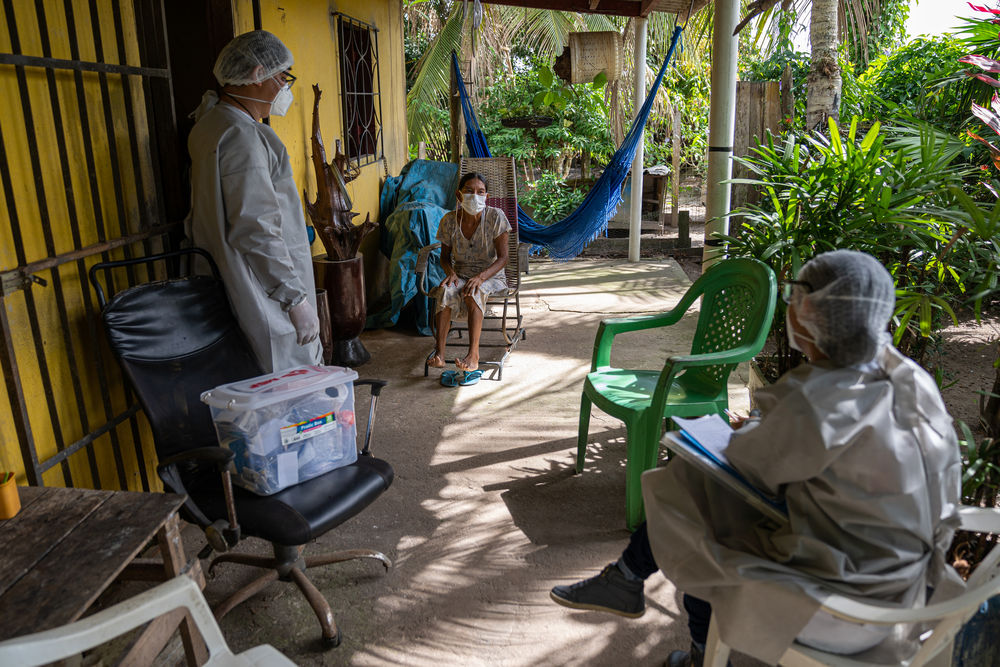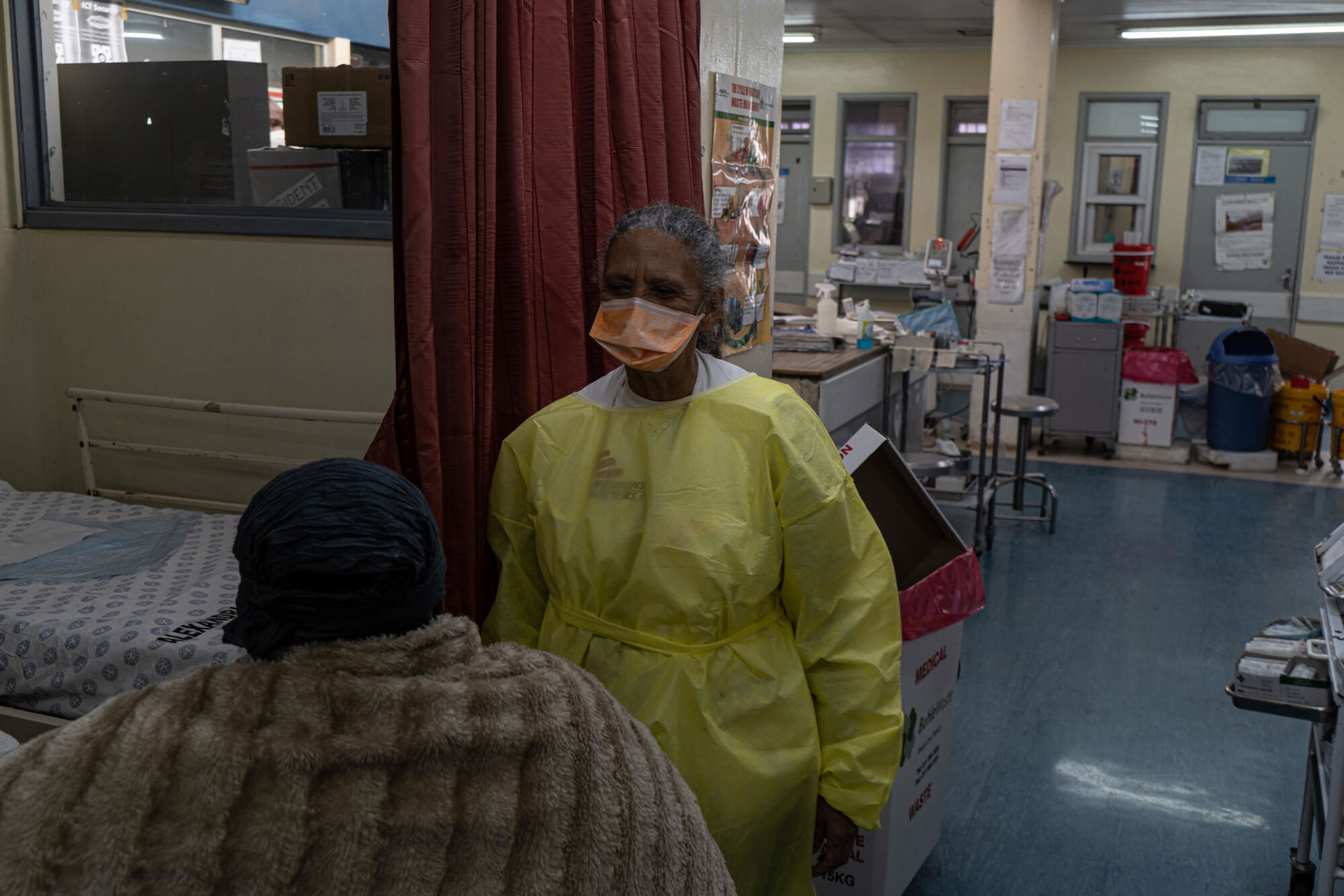Swiss pharmaceutical corporation Roche must urgently share know-how and technology with broad range of manufacturers in low- and middle-income countries to scale up production and access
As the World Health Organization (WHO) recommended tocilizumab today for people with severe COVID-19, Médecins Sans Frontières/Doctors Without Borders (MSF) called on the Swiss pharmaceutical corporation Roche, the world’s sole producer of the drug, to lower the price of the drug to make it affordable and accessible for everyone who needs it, everywhere. Roche must end its monopoly and urgently share the know-how, master cell lines and technology needed to produce this drug with other manufacturers across the world to ensure supply and improved access.
Tocilizumab is the second drug ever recommended by the WHO for COVID-19 treatment after recommending dexamethasone in September 2020. It belongs to the class of drugs called monoclonal antibodies (mAbs), that are used in the treatment of various diseases including cancers. However, most of the existing mAbs have been priced extremely high, and are hence virtually impossible to access in low- and middle-income countries.
“Medical practitioners in many countries in Africa and Latin America, who are grappling with newer and more transmissible variants of coronavirus, are right now struggling to keep their patients alive,” said Julien Potet, Neglected Tropical Diseases Policy Advisor at MSF’s Access Campaign.
This drug could become essential for treating people with critical and severe cases of COVID-19 and reduce the need for ventilators and medical oxygen which are scarce resources in many places. Roche must stop following a business-as-usual approach and take urgent steps to make this drug accessible and affordable for everyone who needs it by reducing the price and transferring the technology, know-how and cell lines to other manufacturers. Too many lives are at stake.
Even though tocilizumab has been on the market since 2009 for treatment of rheumatologic diseases, access has remained a challenge. Roche kept the price of this drug very high in most countries, with price tags ranging from US$410 in Australia, $646 in India to $3,625 in the USA per dose of 600mg for COVID-19. The cost to manufacture tocilizumab is estimated to be as low as $40 per dose of 400mg, given that the manufacturing costs of monoclonal antibodies are often below $100 per gram when produced on a large-scale. Roche should agree to sell tocilizumab for COVID-19 at a much more affordable price than they currently do.
The main patent on tocilizumab expired in 2017, yet several secondary patents remain on the medicine in a number of low- and middle-income countries that may cause uncertainties. Several ‘biosimilar’ versions are under development, but none have been approved by a regulatory authority, meaning that despite being off-patent, Roche continue to have de facto market exclusivity that impacts the availability of the drug in the absence of sufficient supply.
In this raging pandemic, as many people in low- and middle-income countries continue to fall severely sick due to surges in COVID-19, demand for this drug is expected to increase. Shortages of tocilizumab have been observed in many countries that have already started using it for COVID-19 treatment. In India, during the second wave in May, Roche's distributor ran out of the drug and not a single vial was available in the country for critical patients.
“Over the last few months, we have helplessly witnessed people in South Asia scrambling to get hold of tocilizumab for patients with severe forms of COVID-19,” said Leena Menghaney, Global IP advisor for MSF Access Campaign.
Manufacturers based in low- and middle-income countries urgently need to register and scale up production to increase the global supply. With more than 3.9 million lives already lost to COVID-19, the world cannot wait any longer for access to treatments that can help in increasing the chances of survival.
While there are few mAbs that have been approved by the US Food and Drug Administration for treatment of COVID-19, there are many newer mAbs that are currently being investigated as potential treatments. However, high prices and limited volumes of mAbs is expected to remain a barrier for accessing these drugs in low- and middle-income countries. Besides tocilizumab, two new antiviral mAbs, casirivimab and imdevimab, produced as a cocktail by the US pharmaceutical corporation Regeneron, have recently demonstrated in a clinical trial to decrease the risk of death among hospitalised seronegative COVID-19 patients who were in severe or critical condition. While these mAbs are not yet recommended by the WHO, Regeneron has pegged this cocktail at a price of $820 in India, $2,000 in Germany and $2,100 in the USA.
Another mAb recommended by WHO today, sarilumab is under wide patent protection globally. Regeneron has applied for and been granted patents on sarilumab and its formulation in at least 50 low- and middle-income countries, raising immediate challenges of ensuring uninterrupted production and supply by diverse producers in these countries.
“With several monoclonal antibodies in the pipeline that could potentially be useful in preventing and treating COVID-19, but also many others already available or in development for treating many other diseases including various cancers, governments need to step up to ensure wider accessibility and affordability for this critical class of drug. MSF is also calling on all governments to overcome the intellectual property barriers on these crucial drugs by supporting the “TRIPS waiver” at the World Trade Organization and pushing pharmaceutical corporations to transfer technology to other manufacturers in low- and middle-income countries so that more people can access the drugs they need during the pandemic and beyond,” said Potet.



